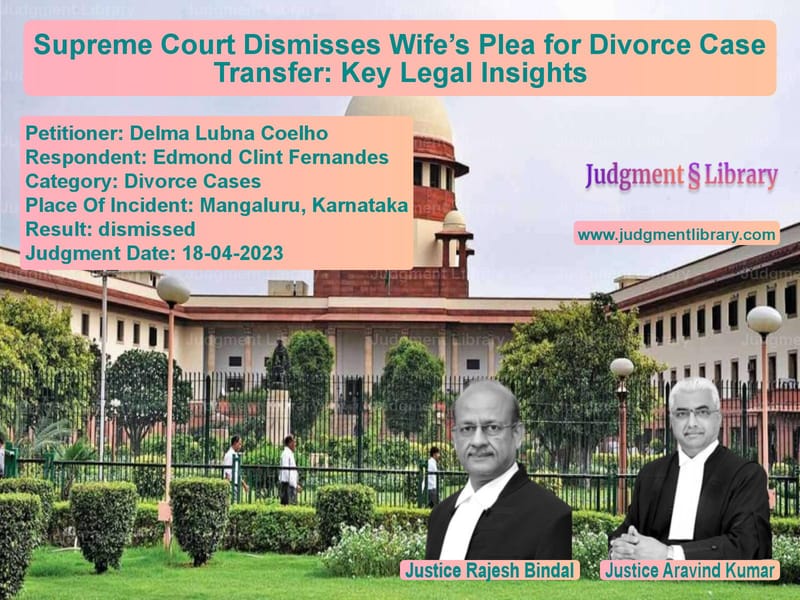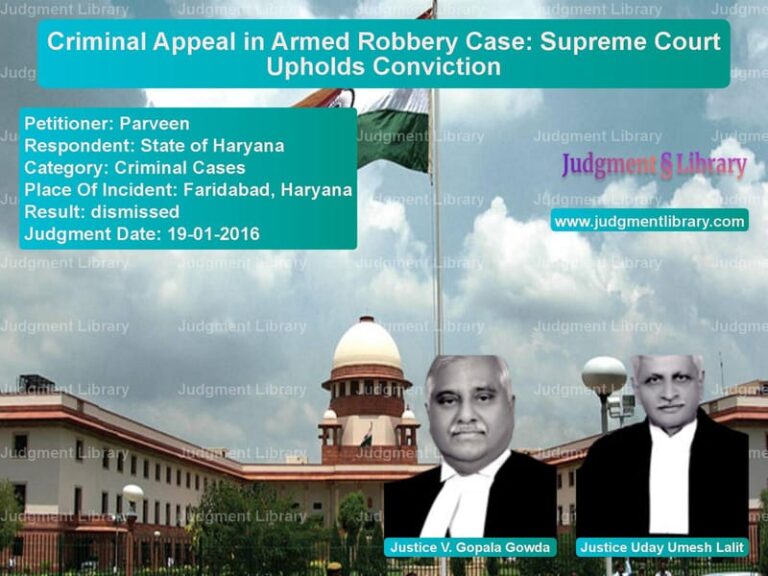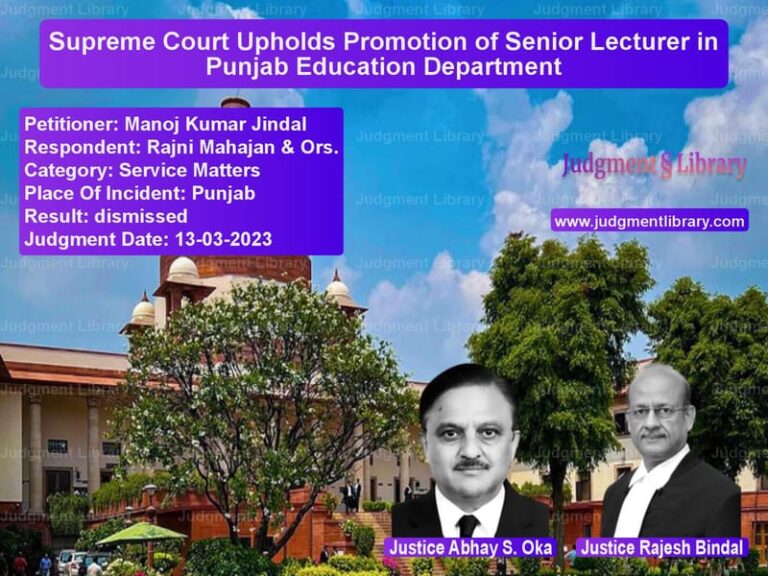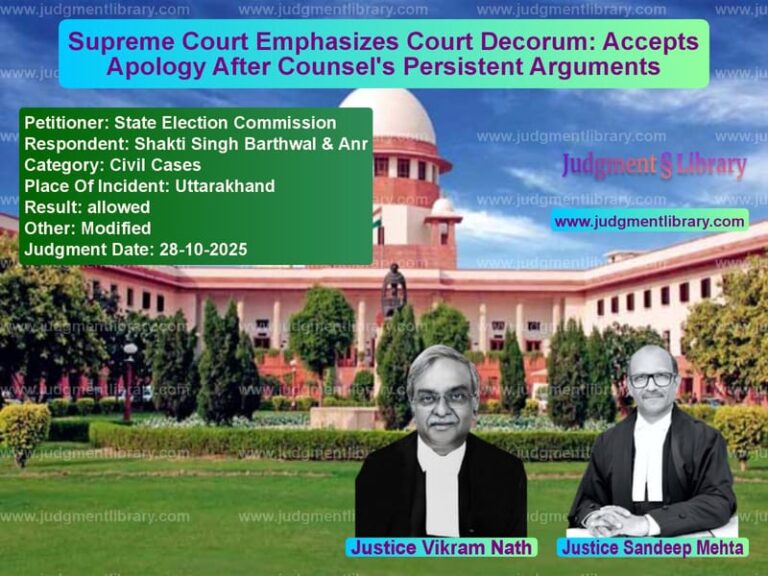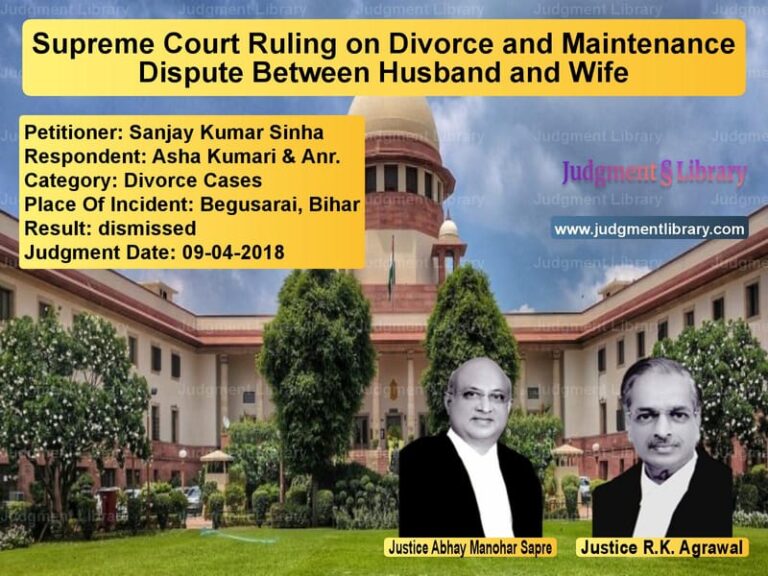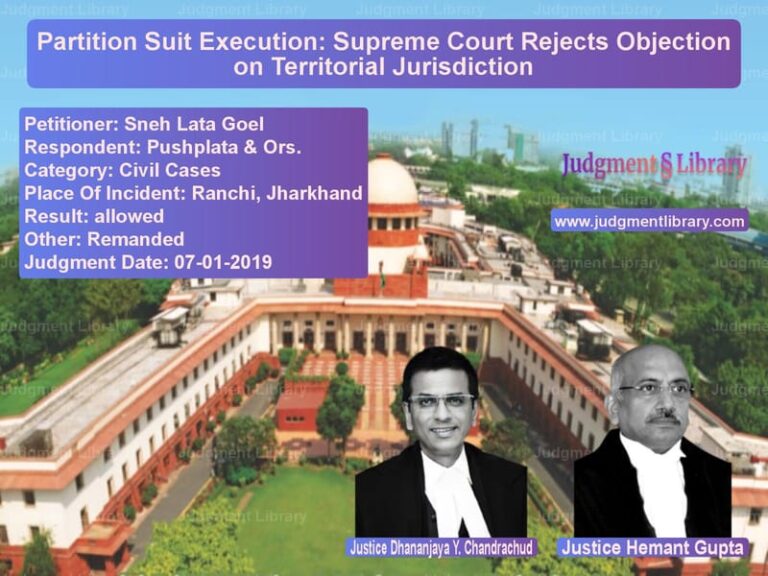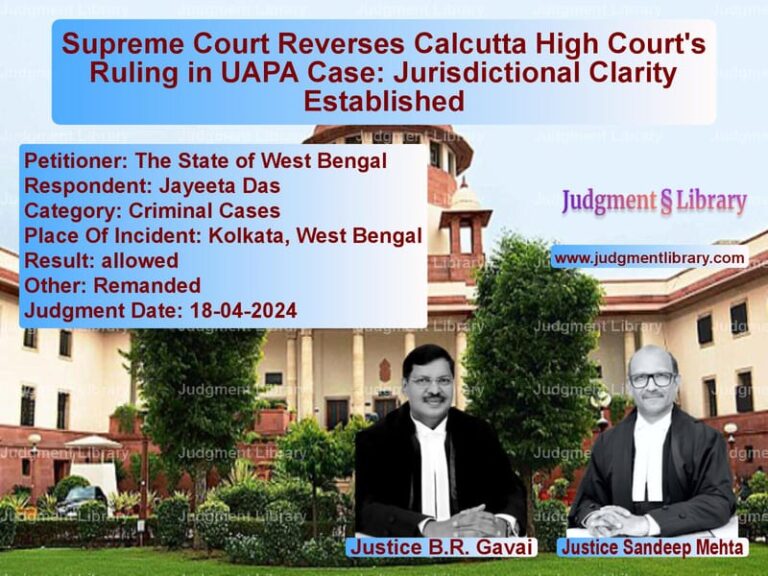Supreme Court Dismisses Wife’s Plea for Divorce Case Transfer: Key Legal Insights
The Supreme Court of India recently ruled on a transfer petition filed by Delma Lubna Coelho seeking the transfer of a divorce case filed by her husband, Dr. Edmond Clint Fernandes, from the Family Court at Mangaluru, Karnataka, to the Family Court at Bandra, Mumbai. The court dismissed the transfer petition, emphasizing that the petitioner, being a permanent resident of Canada, could travel to Mangaluru for hearings. This ruling sheds light on the Supreme Court’s approach toward transfer petitions in matrimonial disputes and the extent of leniency granted to wives in such cases.
Background of the Case
The petitioner-wife and respondent-husband met on Facebook in December 2019 and got married on December 5, 2020, as per Christian rites and customs in Mangaluru. However, their marital life was short-lived, and they separated within 40 days of marriage. The wife alleged mistreatment by her husband and in-laws, stating that she was insulted and sent back to Mumbai with a one-way ticket. When she returned after the COVID-19 restrictions eased, she was denied entry into her matrimonial home.
The respondent-husband, on the other hand, maintained that the wife voluntarily left the matrimonial home, took up a job in Mumbai, and had a history of discord with his family. He further argued that multiple attempts at mediation had failed and that their marriage had irretrievably broken down.
Petitioner’s Arguments
- The petitioner-wife claimed that she was subjected to ill-treatment and humiliation by her husband and his family.
- She was sent to Mumbai on a one-way ticket, and upon her return, she was not allowed entry into her matrimonial home.
- She filed a complaint at the Pandeshwar Police Station in Mangaluru, but her husband refused to reconcile.
- She argued that she was living with her elderly parents in Mumbai and had no one to accompany her to Mangaluru for legal proceedings.
- She does not understand Kannada, the local language in Karnataka.
- Frequent travel to Mangaluru would put her job at risk.
- She expressed her willingness to reconcile with her husband if given a chance.
Respondent’s Arguments
- The respondent-husband stated that they had met on social media and that the wife was aware of his family background before marriage.
- He alleged that the wife’s behavior changed after marriage and that she was unwilling to adjust to his family environment.
- He accused the wife of prioritizing a luxurious lifestyle and being indifferent to his elderly parents.
- He pointed out that the wife was a permanent resident of Canada and that she attended mediation sessions remotely while staying in Canada.
- He claimed that he had made efforts to reconcile but failed.
- He argued that the wife’s petition for transfer was merely a counterblast to his divorce petition.
Supreme Court’s Observations
- The court noted that mediation attempts had failed despite prolonged efforts.
- The wife had spent a significant amount of time in Canada after separation, attending mediation sessions online.
- As the wife was well-educated and employed, she could travel to Mangaluru for hearings.
- The court found no justification for transferring the case to Mumbai, as the husband resided in Mangaluru with his elderly parents.
- It was noted that in matrimonial cases, courts generally show leniency toward women in transfer petitions. However, in this case, the petitioner’s circumstances did not warrant such a transfer.
Key Legal Principles Highlighted
The Supreme Court’s ruling emphasized certain legal principles related to matrimonial disputes and transfer petitions:
- Judicial Leniency in Transfer Petitions: While courts generally show leniency toward wives in matrimonial cases, such leniency is not absolute. Each case must be decided based on its specific circumstances.
- Financial and Logistical Considerations: The court considered the financial and logistical feasibility of the wife attending hearings in Mangaluru, ruling that she could do so without undue hardship.
- Mediation as a Precondition: The court highlighted that mediation should be attempted before transferring cases, reinforcing its importance in resolving matrimonial disputes.
- Article 142 of the Constitution: The court refused to invoke Article 142 to dissolve the marriage at this stage, reasoning that good sense might still prevail between the parties.
Final Judgment
The Supreme Court dismissed the transfer petition, ruling that:
- The petitioner-wife can attend hearings in Mangaluru.
- She may apply for exemption from personal appearance when necessary.
- If she requires financial assistance for travel, she may apply for reimbursement before the family court.
- The case did not warrant the exercise of Article 142 of the Constitution for dissolution of marriage at this stage.
Conclusion
The Supreme Court’s judgment reinforces the principle that transfer petitions in matrimonial cases should be evaluated on a case-by-case basis. While courts generally favor leniency toward women, such discretion is not automatic. The ruling also underscores the importance of mediation in resolving matrimonial disputes before considering extreme measures such as transfer of cases or dissolution of marriage.
Petitioner Name: Delma Lubna Coelho.Respondent Name: Edmond Clint Fernandes.Judgment By: Justice Rajesh Bindal, Justice Aravind Kumar.Place Of Incident: Mangaluru, Karnataka.Judgment Date: 18-04-2023.
Don’t miss out on the full details! Download the complete judgment in PDF format below and gain valuable insights instantly!
Download Judgment: delma-lubna-coelho-vs-edmond-clint-fernand-supreme-court-of-india-judgment-dated-18-04-2023.pdf
Directly Download Judgment: Directly download this Judgment
See all petitions in Mutual Consent Divorce
See all petitions in Alimony and Maintenance
See all petitions in Property Division in Divorce Cases
See all petitions in Judgment by Rajesh Bindal
See all petitions in Judgment by Aravind Kumar
See all petitions in dismissed
See all petitions in supreme court of India judgments April 2023
See all petitions in 2023 judgments
See all posts in Divorce Cases Category
See all allowed petitions in Divorce Cases Category
See all Dismissed petitions in Divorce Cases Category
See all partially allowed petitions in Divorce Cases Category

